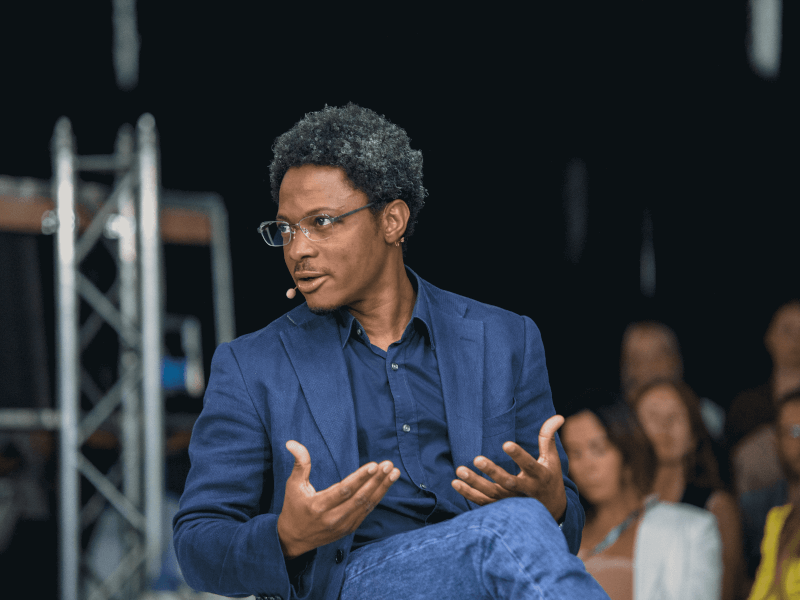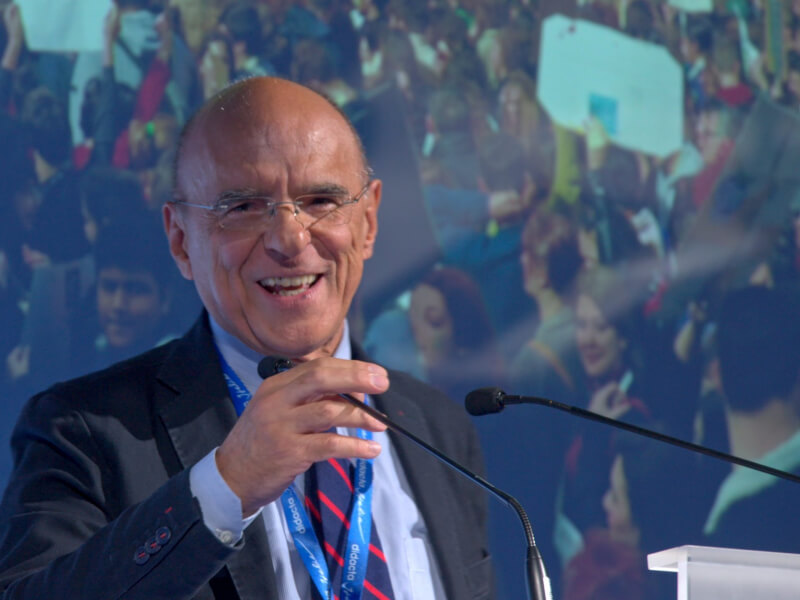13 November 2023 – Why did you join as a member of The Club of Rome?
I am interested in the themes covered by The Club of Rome, such as the political economy of overconsumption, its impacts on the environment and socio-political consequences. There is growing inequality between nations, genders, races, generations, with consequences that are raising questions around the legitimacy of interventions that are being promoted by traditionally powerful countries, institutions, and individuals that are short-term benefiting from the current unsustainability. My interest in The Club of Rome is in its focus on humanity, a celebration of our differences, and yet a shared vision where everyone’s wellbeing is met within ecological limits.
You are a Transformational Economics Commissioner with the Earth4All project, how has this shaped your approach to promoting sustainability and development?
The Earth4All project focuses on turnarounds; the recognition that we are geared in the wrong direction. The five key turnarounds identified by the Earth4All project – empowerment, inequality, energy, food, and poverty – are key areas that should be on the agenda of every major institution globally. Working on Earth4All has reinforced my conviction that developing a sustainable future requires us to go beyond consumer scapegoatism and make fundamental changes in the socio-technical context that shapes our aspirations and lifestyles. A rethink of the values of our institutions and practices, and giving importance to elements such as care, universality, regeneration, meaningful participation, and respect for differences should underscore the transformation we seek. We need to, for example, recognise the limitations of corporatism in the current form – their extractive colonialist approaches, and their focus on financial rewards for the minority that constitutes shareholders while shifting the burden to the public and diminishing prospects for shared prosperity for the majority.
How have your previous experiences influenced your approach to promoting sustainability on a global scale?
I use a political economy to understand how to organise ourselves as a society to meet our needs within the ecological means available to us. In this I tend to focus on provisioning systems, institutions, and power dynamics that shape policies and programs that facilitate resource distribution and access.
The tendency to design legislation, sustainable finance, or green investment from the perspectives of large corporations or high-tech startups shows a runaway system that has become more adept at creating opportunities that generate more money, green or otherwise, for the already powerful than necessarily seeking alternatives that optimise wellbeing for all.
Through my work as director for sustainable consumption and production at the Institute for Global Environmental Strategies, it became clear that corporations in private hands beyond a certain scale become a threat to democracy and global governance, besides being unaccountable for the environmental externalities of their operations. As a counterpoint to this we need to make sure that bottom-up solutions and local communities are strengthened, to enhance resilience; that participatory processes are open, to engage a plurality of perspectives; that the meeting of fundamental human needs is not subject to speculative financing, in order to ensure equitable access; and that human ingenuity is not reduced to technology.
At the United Nations partnership promoting entrepreneurship for sustainable development (UN SEED), we focused on empowering eco-inclusive enterprises. Micro small and medium size enterprises, sometimes as small as two-man operations, are unsung heroes, especially in developing countries, where they use entrepreneurship to support the local economy, address environmental problems, while also serving as social network hubs that are vital to community resilience. Yet they have limited capacity to participate in policy processes that affect them, or to navigate the banking systems and investment opportunities that could get their solutions scaled. Focusing resources on small and medium size enterprises would enhance their capacity to meet societal needs in ways that are less dependent on extractive and non-regenerative activities.
What has been your proudest initiative or project
Setting up the Hot or Cool Institute was predicated on the understanding that the urgency and scale of sustainability transformation needs solid science in combination with universal values to underscore policy and actions. This can be seen through our scientific and policy publications such as 1.5-Degree Lifestyles and Unfit, Unfair, Unfashionable: Resizing fashion for a Fair Consumption Space.
Despite being a child of the pandemic, in its three years the institute has established global science-policy coalitions demonstrating interlinkages between growing social tensions and deepening environmental issues, showing how changes in provisioning systems and consumption are integral parts of solutions. The institute has engaged and had impacts on public policy at the highest levels: for example – our reports informing debate in the European Parliament, and supporting the UN Environment Programme to develop policy recommendations on changing to sustainable lifestyles in a climate emergency.
What challenges do you see for the future of sustainability?
The seduction of technology is letting us to sometimes put our faith in unproven inventions or to misuse others in potentially problematic ways. In the middle of our crises, our rush to embrace all sorts of technologies without critical questions does not allow us to objectively evaluate where the good aspects are, and the dangerous ones could be. A clearheaded understanding and cautious approach would be needed.
The second challenge is how do we ween ourselves off fossil fuels and their embeddedness in almost every facet of our industrialised society. It is not only that fossil fuels are the biggest polluting by far, but the sector also wields vast amounts of power over governments and institutions. While putting attention to developing renewable energy, we should also be looking at winding down sectors that are energy intensive, but which are not necessarily contributing to our wellbeing. This includes a certain bravery in acknowledging that there are certain industries we do not need and must be let go, even if they are cash cows.
The third challenge is addressing power dynamics, especially within and by the financial sector – which is corrupt, caters to greed, and preserves colonialist tendencies. It’s not only about financing the sustainability transition; it is essentially also about transforming finance.
The final challenge is in transforming the food system. Food is important for biological survival, it narrates our histories, defines our cultures, and determines our wellbeing. The fact that we find ourselves in contested territory about something so fundamental to our existence is nonsensical. Regenerative agriculture is not just a slogan, it is the very essence of what our future wellbeing depends on. This goes along with reviewing food technologies, land use patterns, property rights, women empowerment, and even the broader ecosystem including things such as use of intellectual property rights for medicines from exploitation of biodiversity.
What does a sustainable future look like to you?
There is not just one future, but multiple futures defined by different cultures, peoples, and communities. No one has a right to cultural superiority or to squash the vision of another community just because it doesn’t match theirs. However, certain elements must be present in any sustainable future, such as living within natural environmental limits, fairness in opportunities for dignified living. This is why the concept of a fair consumption space envisages both reducing emissions from overconsumption but also ensuring a social floor below which people should not be allowed to fall. The work of The Club of Rome can contribute to this future.






